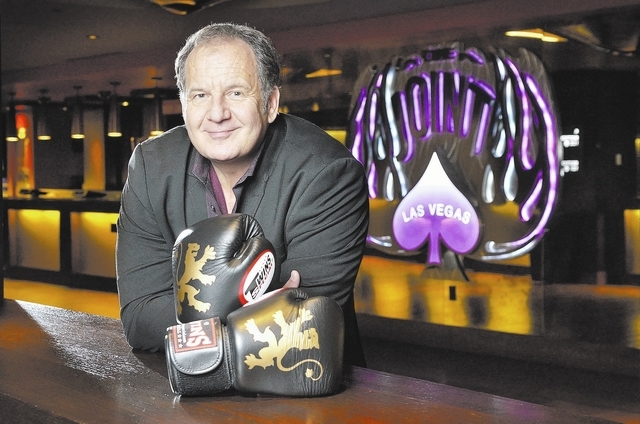Q&A with Scott Kent, president and CEO of Lion Fight Promotions

Scott Kent’s love for fighting developed while he was growing up in Helena, Mont., and watched boxing on ABC’s “Wide World of Sports.”
It took about 50 years for Kent to enter the business of fighting. He’s owner and CEO of Las Vegas-based Lion Fight Promotions, which stages and promotes professional Muay Thai fights, the combat sport of stand-up kicking and punching rooted in Thailand.
Kent spent more than two decades in the corporate world, focusing on risk management at Las Vegas hotel-casinos before he launched Lion Fight in 2010.
Kent, now 52, joked that before he launched Lion Fight, he was a resort executive by day and Muay Thai trainee by night.
He enjoyed working out, but avoided being a combatant in actual fights, noting it would not have been a good idea to show up at his office with the former Mandalay Resorts Group and Fontainebleau Resorts with a black eye from a Muay Thai bout.
Kent moved from taekwondo workouts to Muay Thai because he liked its more aggressive style.
“I love the cultural traditions of Muay Thai. It’s the most exciting stand-up fighting style in the world,” Kent said.
He launched the Muay Thai promotion business because “Nobody is really doing this properly.”
He brought a conservative business plan and business experience from the Las Vegas casino market and combined it into a Muay Thai fight business that will stage its next event — Lion Fight 13 — at The Joint at the Hard Rock Hotel on Feb. 7.
What was the biggest financial challenge in launching Lion Fight and how did you fund the launch?
The biggest financial challenge is finding investors who understand what you are trying to do when you are starting because there aren’t a lot of financial models for fight companies. We have been fortunate to have personal relationships with our investors who took a chance on our idea. Christine Toledo (vice president of events) and I have stayed true to our initial business plan of bringing in the top international fighters and developing the next generation of American Muay Thai stars.
What’s the biggest expense you face in holding a fight event? Are you making a profit now?
The biggest expense is the fighter purses and then all of the other costs that go into putting on a first-class show, TV production costs, lighting, the commission, ring rental, insurance, travel, medicals, etc. We have become profitable by watching those costs and focusing on revenue streams like ticket sales and sponsorships.
What’s the hardest thing about the job?
People tell me all of the time that they were going to promote. Few people actually make that commitment. Most of those that try to promote will do a show or two and then disappear. It takes a lot of money to stay competitive and it will take a few years before you will turn a profit and there still are no guarantees and I think that scares away most investors. That’s the hardest part. We were also fortunate to have Andrew Simon from AXS TV offer us a deal that gets Lion Fight into 43 million homes in North America.
What was the scariest thing about launching?
Many people thought we were crazy for launching Lion Fight in 2010 amid the worst economy since the Great Depression. We have always run our company lean, and I look at what the UFC has done in a miserable economy and it tells us people will still pay for quality entertainment. The key was to weather that storm and establish ourselves as the premier Muay Thai promotion in the Unites States and now that the economy is improving, we feel strategically we are in a great place as we see areas like sponsorships improving.
What exactly do Muay Thai fights offer that appeal to audiences?
Combat sports and fighting in general has never been more popular. The UFC has changed the landscape in a good way and Lion Fight appeals to MMA fans as well as fans of more traditional martial arts. The international popularity of Muay Thai with its rich cultural history and the fact that it is the most exciting stand-up fighting style in the world creates an economic scenario for Lion Fight that has virtually no ceiling.












